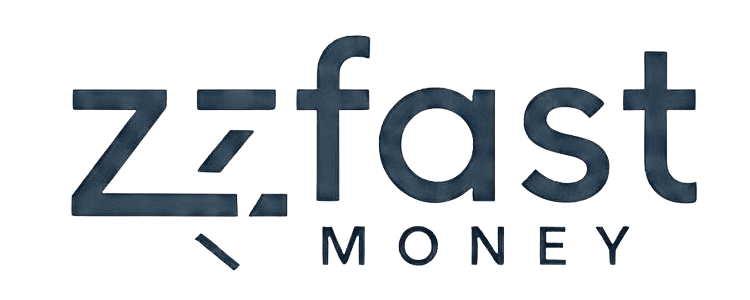20 Best Small Business Ideas for Men to Start From Home in 2025
The dream of being your own boss has never been more attainable. The traditional 9-to-5 is no longer the only path to a successful career. For men seeking greater flexibility, financial control, and the satisfaction of building something from the ground up, starting a home-based business is a powerful move.
Whether you’re looking for a full-time venture or a profitable side hustle, the key is finding an idea that aligns with your skills, passions, and lifestyle. This guide is designed to do just that. We’ve compiled 20 diverse and scalable small business ideas for men that can be launched and operated right from the comfort of your home.

We’ll cover everything from digital services to hands-on crafts, providing the insights you need to take that first exciting step toward entrepreneurship.
Why Start a Home-Based Business?
Before diving into the ideas, let’s quickly cover why this path is so appealing:
- Low Overhead: Forget expensive office leases. Your startup costs are significantly lower when your home is your headquarters.
- Ultimate Flexibility: Set your own hours. Work around family commitments, personal projects, or even another job.
- Total Control: You are the decision-maker. You steer the ship, from the services you offer to the clients you work with.
- Scalability: Many home-based businesses can start small and grow into significant enterprises, with the potential to hire staff and expand your offerings.
Ready to find your calling? Let’s explore the top home-based business ideas for men.
Digital & Online Business Ideas
These businesses leverage the power of the internet, requiring a good computer, a reliable internet connection, and specific digital skills.
1. Freelance Web Developer
What it is: Building, designing, and maintaining websites for businesses and individuals. From simple brochure sites for local businesses to complex e-commerce platforms, web developers are in constant demand.
- Why it’s a great fit: It’s a highly technical and problem-solving-oriented field. If you enjoy logic, coding, and creating functional digital products, this is for you.
- Skills needed: Proficiency in languages like HTML, CSS, JavaScript, and potentially back-end languages like PHP or Python. Familiarity with platforms like WordPress is a huge plus.
- How to get started: Build a portfolio of personal or pro-bono projects. Create a profile on platforms like Upwork or Toptal. Network on LinkedIn to find your first clients.
- Income Potential: High. Experienced developers can charge anywhere from $75 to $150+ per hour.
2. SEO (Search Engine Optimization) Consultant
What it is: Helping businesses rank higher on search engines like Google. This involves keyword research, on-page optimization, link building, and technical site audits to increase organic traffic and leads.
- Why it’s a great fit: It combines analytical thinking with creative strategy. It’s a field that’s always evolving, making it perfect for lifelong learners.
- Skills needed: A deep understanding of how search engines work, proficiency with tools like Ahrefs or SEMrush, and strong analytical skills.
- How to get started: Start by optimizing your own website to prove your skills. Offer a free audit to a local business to build a case study. Certifications from Google or HubSpot can add credibility.
- Income Potential: Very high. SEO retainers can range from $500/month for a small local business to over $10,000/month for larger corporations.
3. E-commerce Store Owner (Niche Products)
What it is: Selling physical products online through your own website. The key to success is finding a niche you’re passionate about, such as high-quality men’s grooming products, specialized coffee gear, custom automotive accessories, or outdoor survival equipment.
- Why it’s a great fit: It allows you to turn a hobby or passion into a business. You have full control over branding and product selection.
- Skills needed: Basic understanding of digital marketing, customer service, and inventory management.
- How to get started: Use platforms like Shopify or BigCommerce to easily build a professional store. Source products from wholesalers, or consider dropshipping to minimize initial inventory costs.
- Income Potential: Varies widely, but highly scalable. Success stories often see six-figure annual revenues.
4. YouTube Content Creator / Podcaster
What it is: Creating engaging video or audio content around a specific topic. Popular niches for men include DIY/home improvement, tech reviews, car maintenance, fitness and nutrition, gaming, or financial advice.
- Why it’s a great fit: It’s a creative outlet that can be monetized. If you have a charismatic personality or deep expertise in a subject, you can build a loyal community.
- Skills needed: Video/audio editing, public speaking or on-camera presence, and content strategy.
- How to get started: Start with a decent smartphone and a good microphone. Be consistent with your content schedule. Monetize through ads, sponsorships, affiliate marketing, and merchandise.
- Income Potential: Can be slow to start, but top creators earn millions. A solid mid-level creator can earn a very comfortable full-time living.
5. Affiliate Marketer
What it is: Promoting other companies’ products and earning a commission for every sale made through your unique affiliate link. This is often combined with blogging or content creation.
- Why it’s a great fit: It’s a low-cost entry into online business. You don’t have to deal with creating products, managing inventory, or handling customer service.
- Skills needed: Content creation (writing, video), SEO, and an ability to build trust with an audience.
- How to get started: Choose a niche you know well. Start a blog or YouTube channel. Join affiliate programs like Amazon Associates or ShareASale and start incorporating relevant product links into your content.
- Income Potential: Scalable. Beginners might make a few hundred dollars a month, while super-affiliates can earn six or seven figures a year.
6. Professional Resume Writer
What it is: Crafting professional, compelling resumes, cover letters, and LinkedIn profiles for job seekers. You help clients highlight their skills and experience to land their dream job.
- Why it’s a great fit: It leverages strong writing and strategic thinking skills. You get the satisfaction of directly helping people advance their careers.
- Skills needed: Excellent writing and editing skills, an understanding of different industries and job functions, and knowledge of modern resume formats.
- How to get started: Offer your services to friends and family to build a portfolio of “before and after” examples. Market your services on LinkedIn and freelance platforms.
- Income Potential: Solid. You can charge per project, with rates from $150 for an entry-level resume to $500+ for an executive package.
Hands-On & Skilled Trade Ideas
If you’re someone who prefers working with your hands, these home-based businesses turn practical skills into profit. Your garage or a spare room can become your workshop.
7. Custom Woodworking
What it is: Creating and selling custom wood furniture, home decor, cutting boards, or other artisanal goods. This is for the man who loves the smell of sawdust and the satisfaction of building something tangible.
- Why it’s a great fit: It’s a classic, respected craft that allows for immense creativity. High-quality, handmade goods command premium prices.
- Skills needed: Carpentry skills, knowledge of different woods and finishes, and an eye for design. Safety is paramount.
- How to get started: Start with smaller, popular items like charcuterie boards or shelves. Sell locally through Facebook Marketplace or at craft fairs. Create an Etsy shop to reach a national audience.
- Income Potential: Good. Depending on the complexity and artistry of your pieces, you can earn several hundred to thousands of dollars per item.

8. Small Engine Repair
What it is: Fixing lawnmowers, leaf blowers, chainsaws, snowblowers, and other small-engine equipment from your garage. This is a service that is always in demand, especially in suburban areas.
- Why it’s a great fit: It’s a practical, problem-solving business with low overhead. You save people money by repairing instead of replacing their expensive equipment.
- Skills needed: Mechanical aptitude and experience working with two-stroke and four-stroke engines.
- How to get started: Get your garage organized and acquire a good set of tools. Advertise through local community Facebook groups, flyers, and word-of-mouth.
- Income Potential: Steady. You can charge an hourly rate or a flat fee per repair, easily generating a solid side income or full-time wage.
9. 3D Printing Services
What it is: Using a 3D printer to create custom parts, prototypes, miniatures for tabletop games, or unique products. This is a modern, tech-forward version of a fabrication business.
- Why it’s a great fit: It blends technology with hands-on creation. The applications are nearly limitless, from helping inventors to creating personalized gifts.
- Skills needed: Understanding of 3D modeling software (like Blender or Fusion 360) and the mechanics of operating and maintaining a 3D printer.
- How to get started: Invest in a reliable entry-level 3D printer like an Ender 3 or Prusa. Practice by printing existing models from sites like Thingiverse. Market your custom printing services on Etsy or to local engineering firms.
- Income Potential: Growing. You can charge based on material usage and print time.
10. Custom PC Building
What it is: Assembling custom-built desktop computers for gamers, video editors, or professionals with specific performance needs. You select the best components for a client’s budget and build a high-performance machine.
- Why it’s a great fit: It caters to a passionate and high-spending market. If you love PC hardware and keeping up with the latest tech, this is a dream job.
- Skills needed: Deep knowledge of PC components (CPUs, GPUs, motherboards, etc.), cable management skills, and troubleshooting abilities.
- How to get started: Build a few stunning PCs for yourself or friends and photograph them professionally for a portfolio. Advertise on gaming forums, Reddit communities (like r/buildapc), and local tech groups.
- Income Potential: Good. You can charge a flat build fee (e.g.,
200−200-200−500 per PC) on top of the cost of the components.
11. Bicycle Repair and Tuning
What it is: Offering bike maintenance and repair services from your home garage. This includes tune-ups, flat tire repairs, brake adjustments, and component upgrades.
- Why it’s a great fit: Cycling is a hugely popular hobby and mode of transport. You provide a convenient and often cheaper alternative to a traditional bike shop.
- Skills needed: Strong mechanical skills specific to bicycles. Knowledge of different bike types (road, mountain, e-bike) is essential.
- How to get started: Invest in a quality bike stand and specialized tools. Get certified through a program like the United Bicycle Institute to boost your credibility. Market your services to local cycling clubs and communities.
- Income Potential: Steady part-time or full-time income, especially during peak cycling seasons.
12. Leatherworking
What it is: Crafting and selling high-quality leather goods like wallets, belts, bags, and journal covers. This is a heritage craft that appeals to customers looking for durable, artisanal products.
- Why it’s a great fit: It’s a quiet, focused craft with relatively low startup costs for basic tools. The perceived value of handmade leather goods is very high.
- Skills needed: Patience, attention to detail, and skills in cutting, stitching, and finishing leather.
- How to get started: Start with a beginner’s leathercrafting kit. Watch tutorials on YouTube. Sell your first creations on Etsy or at local markets to test the waters.
- Income Potential: Good. A well-made leather wallet can sell for
50−50-50−100+, and bags can fetch several hundred dollars.
Service & Coaching-Based Businesses
These businesses are built on your expertise and ability to help others. They often require certifications or a proven track record of success.
13. Online Personal Trainer / Fitness Coach
What it is: Providing personalized workout plans, nutrition guidance, and accountability coaching to clients remotely. You use video calls, apps, and email to guide clients toward their fitness goals.
- Why it’s a great fit: It allows you to help people transform their lives from anywhere. It’s highly scalable, as you aren’t limited by your physical location or gym hours.
- Skills needed: A deep understanding of exercise science and nutrition. Certifications (e.g., ACE, NASM, ISSA) are crucial for credibility and insurance.
- How to get started: Get certified. Use your own fitness journey as a case study. Use Instagram and TikTok to share valuable tips and attract clients. Use a platform like Trainerize to manage clients.
- Income Potential: Excellent. You can offer one-on-one coaching for a premium or create more affordable group programs to serve more clients.
14. Financial Coach
What it is: Helping individuals and couples get control of their finances. This is not about investment advice (which requires licensing), but about budgeting, debt reduction, saving strategies, and building healthy financial habits.
- Why it’s a great fit: If you are naturally good with money and enjoy teaching, you can make a profound impact on people’s lives by reducing their financial stress.
- Skills needed: Strong personal finance knowledge, empathy, and communication skills. A certification like the Accredited Financial Counselor (AFC) adds significant credibility.
- How to get started: Create a clear coaching package and pricing structure. Share your financial philosophy on a blog or social media to build authority.
- Income Potential: High. Coaches can charge
100−100-100−300+ per hour or sell multi-session packages.
15. Home Handyman Service
What it is: While the work is done at the client’s home, your business is based out of your own home. You handle scheduling, marketing, and invoicing from your home office and store tools in your garage. You perform small repairs and maintenance tasks like mounting TVs, fixing leaky faucets, assembling furniture, and painting.
- Why it’s a great fit: It leverages a wide range of practical skills. You become the go-to problem solver for homeowners in your community.
- Skills needed: A broad set of DIY skills, good customer service, and reliability.
- How to get started: Get insured! Create a list of services you’re confident in performing. Market yourself on local platforms like Nextdoor and Thumbtack.
- Income Potential: Strong and steady. Experienced handymen can charge
50−50-50−100 per hour.
16. Freelance Graphic Designer
What it is: Creating visual content for businesses, such as logos, branding packages, social media graphics, and marketing materials.
- Why it’s a great fit: It’s a purely creative field that is 100% remote-friendly. Every business needs good design to stand out.
- Skills needed: Proficiency in Adobe Creative Suite (Photoshop, Illustrator, InDesign). A strong portfolio is more important than a degree.
- How to get started: Create a stunning portfolio on a site like Behance. Find clients on freelance platforms like 99designs or by networking with marketing agencies.
- Income Potential: High. Project prices can range from a few hundred dollars for a simple logo to thousands for a full branding package.
17. Remote IT Support Specialist
What it is: Providing technical support and troubleshooting services to individuals and small businesses remotely. This can include software installation, virus removal, and network issues.
- Why it’s a great fit: If you are the person everyone calls for tech help, you can monetize that skill. Small businesses often can’t afford a full-time IT person and will happily pay for on-demand support.
- Skills needed: Broad knowledge of operating systems (Windows, macOS), software, and networking. Patience and clear communication are key.
- How to get started: Market your services to local small businesses that don’t have an IT department. Offer a monthly retainer for ongoing support.
- Income Potential: Solid and reliable. Retainers provide predictable monthly income.
Niche & Creative Ideas
These ideas cater to specific hobbies and interests, allowing you to build a business around something you truly love.
18. Home Coffee Roaster / Craft Beer Brewer
What it is: Perfecting your craft of roasting coffee beans or brewing beer at home and selling your small-batch products locally. (Note: Selling alcohol has strict regulations, so start by checking your local laws. Coffee is much easier.)
- Why it’s a great fit: You turn a popular and sophisticated hobby into a premium brand. Customers love supporting local, artisanal producers.
- Skills needed: A perfectionist’s approach to your craft, understanding of the science behind roasting/brewing, and good branding skills.
- How to get started: Start small, perfecting your recipes. For coffee, sell bags of beans at local farmers’ markets. For beer, check regulations—it may be easier to partner with a nano-brewery initially.
- Income Potential: Moderate to good, with strong brand loyalty potential.
19. Dropshipping Business
What it is: A variation of e-commerce where you sell products online, but a third-party supplier handles all inventory, packing, and shipping. You are responsible for the marketing and customer service.
- Why it’s a great fit: It’s one of the lowest-cost ways to get into e-commerce. You can test products and niches without buying any inventory upfront.
- Skills needed: Digital marketing (especially paid ads on Facebook or Google), website management, and customer service.
- How to get started: Choose a niche. Find reliable suppliers through platforms like SaleHoo or by using apps like DSers with Shopify. Build a clean, trustworthy storefront.
- Income Potential: Can be very high, but margins are thinner than traditional e-commerce, and competition is fierce.
20. Freelance Writer or Editor
What it is: Writing content for businesses, such as blog posts, articles, website copy, and white papers. Editors refine that content for clarity, grammar, and style.
- Why it’s a great fit: If you have a command of the English language and enjoy research and storytelling, this is an incredibly flexible and in-demand business.
- Skills needed: Strong writing/editing skills, ability to meet deadlines, and adaptability to write in different brand voices.
- How to get started: Choose a niche (e.g., tech, finance, health). Create a portfolio of writing samples. Find gigs on sites like ProBlogger Job Board or by cold-emailing companies you admire.
- Income Potential: Good to excellent. Experienced writers can earn $0.25 to $1.00+ per word.
How to Choose the Right Business for You
Feeling overwhelmed by the options? Here’s a quick framework to help you decide:
- Assess Your Skills & Passions: What are you already good at? What do you enjoy doing in your free time? Starting a business is hard work; you’re more likely to succeed if you’re genuinely interested in the field.
- Evaluate Market Demand: Is there a group of people willing to pay for what you offer? Do a quick search on Google or freelance platforms to see if others are successfully running a similar business.
- Consider Your Startup Budget: Be realistic about what you can afford. A freelance writing business can be started for under $100, while a custom woodworking business will require a larger investment in tools.
- Think Long-Term: Where do you want this business to be in five years? Do you want a small side hustle for extra cash, or do you want to build an empire? Choose an idea with the right scalability for your goals.
Your Journey Starts Now
The path to entrepreneurship is a challenging but incredibly rewarding one. The freedom, control, and sense of accomplishment that come from building your own successful home-based business are unparalleled.
The 20 ideas above are just a starting point. Take one that resonates with you, research it further, and take the first small, actionable step today. Whether that’s buying a domain name, creating a portfolio, or organizing your garage, the journey of a thousand miles begins with a single step.
What idea are you most excited about? Do you have another home-based business idea to share? Drop a comment below!





